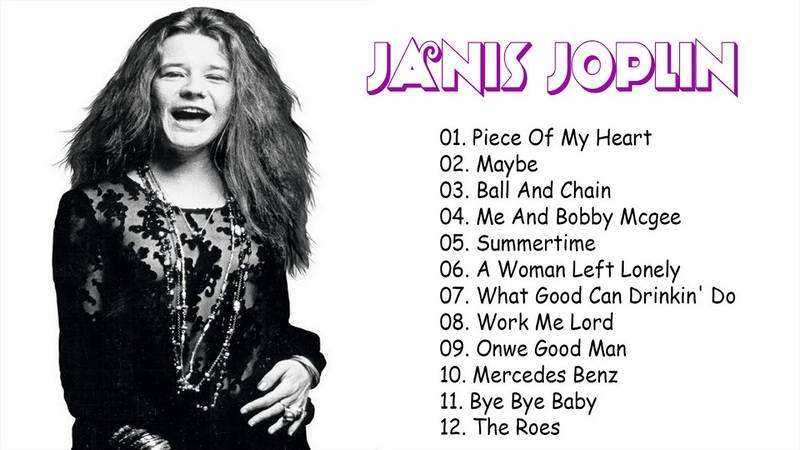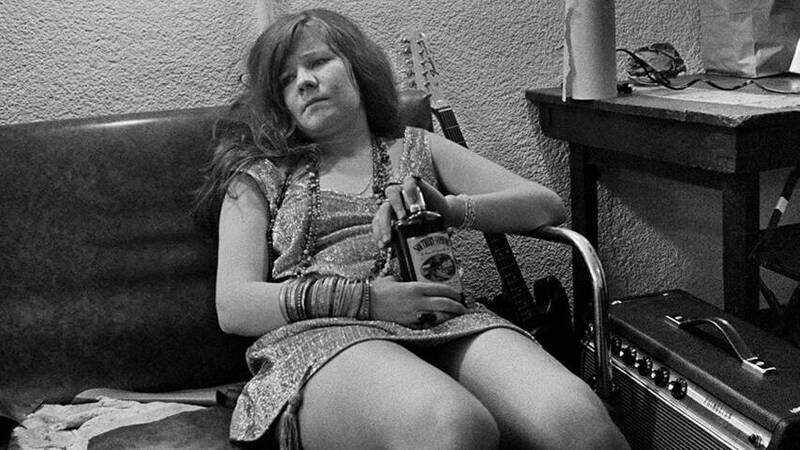Janis Joplin, a powerful voice of the 1960s counterculture, is remembered not only for her extraordinary talent but also for her tragic and premature death. Known for her raw, emotional singing and electrifying stage presence, she became an icon of rock and blues. Despite her immense success, Joplin struggled with personal demons, leading to her untimely demise at the age of 27. This article explores the circumstances surrounding her death, her life, and the impact she left behind.
Here’s a table summarizing key aspects of Janis Joplin’s life and career:
| Category | Details |
|---|---|
| Full Name | Janis Lyn Joplin |
| Date of Birth | January 19, 1943 |
| Place of Birth | Port Arthur, Texas, USA |
| Date of Death | October 4, 1970 |
| Place of Death | Hollywood, California, USA |
| Cause of Death | Heroin overdose |
| Occupation | Singer, Songwriter |
| Genres | Rock, Blues, Psychedelic Rock, Soul |
| Instruments | Vocals, Guitar, Autoharp |
| Years Active | 1962–1970 |
| Breakthrough | 1967 Monterey Pop Festival performance |
| Bands | Big Brother and the Holding Company, Kozmic Blues Band, Full Tilt Boogie Band |
| Notable Albums | Cheap Thrills (1968), I Got Dem Ol’ Kozmic Blues Again Mama! (1969), Pearl (1971) |
| Top Songs | “Piece of My Heart,” “Me and Bobby McGee,” “Cry Baby,” “Ball and Chain,” “Mercedes Benz” |
| Awards | Inducted into the Rock and Roll Hall of Fame (1995), Grammy Lifetime Achievement Award (2005) |
| Legacy | Influential female rock icon, part of the “27 Club” |
| Influences | Bessie Smith, Lead Belly, Odetta, Billie Holiday |
| Documentaries/Films | Janis: Little Girl Blue (2015), The Rose (1979, inspired by her life) |
This table highlights the major milestones and characteristics of Janis Joplin’s life and career.
Early Life and Rise to Fame
Born on January 19, 1943, in Port Arthur, Texas, Janis Lyn Joplin grew up feeling like an outcast. She faced bullying for her unconventional appearance and was ridiculed for her interest in beat poetry and the blues. These experiences fueled her desire to escape her small-town life. She found solace in music, drawing inspiration from legendary blues singers like Bessie Smith and Lead Belly.
In 1966, Joplin moved to San Francisco and joined the psychedelic rock band Big Brother and the Holding Company. Her intense, soulful voice quickly set her apart. The band’s 1967 Monterey Pop Festival performance catapulted them to fame. Their 1968 album, Cheap Thrills, featuring hits like “Piece of My Heart,” became a massive success, establishing Joplin as a leading figure in the rock world.
Struggles with Substance Abuse
A growing dependence accompanied Joplin’s rise to stardom on drugs and alcohol. The pressures of fame and her insecurities led her to self-medicate. Her drug use began with marijuana and progressed to heroin, a drug that would eventually play a significant role in her demise. Friends and colleagues noticed her erratic behavior and mood swings, which worsened as her addiction deepened.
Her substance abuse took a toll on her professional and personal life. Despite her struggles, she remained a sought-after performer. In 1969, she left Big Brother and the Holding Company to form the Kozmic Blues Band. The group recorded I Got Dem Ol’ Kozmic Blues Again Mama!, but critics and fans had mixed reactions. Her performances were still electrifying, but her personal life was unraveling.
The Final Months
By 1970, Joplin was trying to regain control over her life. She formed a new band, the Full Tilt Boogie Band, and began recording what would be her final album, Pearl. During this time, she appeared to be on the mend. She enrolled in a detox program and made efforts to stay clean. However, her battle with addiction was far from over.
In September 1970, Joplin and her band entered the Sunset Sound Recorders studio in Los Angeles to complete Pearl. Despite her best efforts, she relapsed. Her bandmates and friends grew concerned as she resumed using heroin. Her moods fluctuated dramatically, and she often isolated herself, starkly contrasting her usually vibrant and outgoing personality.
The Day of Her Death
On October 4, 1970, Joplin was scheduled to record the vocal track for the song “Buried Alive in the Blues.” When she failed to show up at the studio, her road manager, John Cooke, grew worried. He went to the Landmark Motor Hotel in Hollywood, where she was staying, and found her lifeless body in her room. She was 27 years old.
The official cause of death was a heroin overdose, compounded by alcohol consumption. The autopsy revealed that she had taken a particularly potent batch of heroin. Friends speculated that Joplin, who had recently tried to cut back on her usage, may not have realized how strong the drug was and accidentally took a fatal dose.
The Aftermath
Joplin’s death sent shockwaves through the music world. Her passing came just 16 days after the death of another 27-year-old rock star, Jimi Hendrix. Both artists were part of the so-called “27 Club,” a term used to describe the untimely deaths of several prominent musicians at the age of 27. Joplin’s death underscored the dark side of fame and the destructive impact of substance abuse on talented individuals.
Her final album, Pearl, was released posthumously in January 1971. It became her most successful record, featuring hits like “Me and Bobby McGee” and “Mercedes Benz.” The album showcased Joplin’s vocal prowess and emotional depth, solidifying her legacy as one of rock’s greatest female vocalists.
Legacy and Influence
Janis Joplin’s influence on music and popular culture remains profound. She broke barriers for women in the male-dominated rock industry, inspiring countless female artists to follow in her footsteps. Her raw, unfiltered style and passionate performances continue to resonate with audiences today.
Joplin’s life and death have been the subject of numerous books, documentaries, and films. She is remembered not only for her contributions to music but also for her unapologetic authenticity. Despite her struggles, she lived her life on her terms, refusing to conform to societal expectations.
The Mystery of the “27 Club”
Joplin’s death contributed to the mythos of the “27 Club,” a group of musicians and artists who died at the age of 27. This phenomenon includes artists like Jimi Hendrix, Kurt Cobain, and Amy Winehouse. While some attribute these deaths to the pressures of fame and the challenges of creative life, others see it as a tragic coincidence.
Psychologists and researchers have studied the “27 Club” phenomenon, but there is no definitive explanation. Joplin’s death, like those of her peers, serves as a cautionary tale about the dangers of addiction and the fragility of life, especially for those in the public eye.
Lessons from Joplin’s Life and Death
Janis Joplin’s story highlights the complex interplay between creativity, fame, and addiction. Her music, marked by its honesty and intensity, spoke to the pain and joy of the human experience. Yet, her struggles with self-worth and substance abuse reveal the darker side of her success.
Her life serves as a reminder of the importance of mental health and the need for support systems for those in high-pressure environments. Joplin’s tragic end also underscores the necessity of addressing addiction as a serious health issue, rather than a personal failing.
Other Famous Songs by Janis Joplin

Janis Joplin’s powerful voice and emotive performances have left a lasting legacy in the music world. In addition to her hits like “Piece of My Heart” and “Me and Bobby McGee,” Joplin recorded several other notable songs that showcased her versatility and depth as an artist. Here are some of her most famous tracks:
1. “Cry Baby”
This soulful ballad, featured on her posthumous album Pearl, is a standout example of Joplin’s ability to convey deep emotion through her voice. The song combines elements of blues and rock, highlighting her signature vocal style.
2. “Summertime”
A cover of the George Gershwin classic, “Summertime” is one of Joplin’s most beloved songs. Her rendition, recorded with Big Brother and the Holding Company, brings a raw, bluesy energy to the timeless standard.
3. “Ball and Chain”
Originally written by Big Mama Thornton, Joplin’s powerful live performance of “Ball and Chain” at the Monterey Pop Festival in 1967 is often cited as a defining moment of her career. Her emotional intensity and vocal power captivated the audience, establishing her as a force in the music industry.
4. “Try (Just a Little Bit Harder)”
This upbeat, soulful track from the album I Got Dem Ol’ Kozmic Blues Again Mama! showcases Joplin’s dynamic range and ability to blend rock with blues influences. It became one of her signature songs during live performances.
5. “Move Over”
A fiery, rocking track from Pearl, “Move Over” reflects Joplin’s frustrations with a tumultuous relationship. The song features driving guitars and her trademark impassioned vocals.
6. “Mercedes Benz”
Recorded in one take, “Mercedes Benz” is a humorous a cappella piece that critiques materialism. Its simplicity, combined with Joplin’s expressive voice, made it one of her most memorable recordings.
7. “Maybe”
A cover of a doo-wop classic by The Chantels, “Maybe” is another song where Joplin’s vocal delivery shines. Her version infuses the track with a soulful intensity, making it uniquely her own.
These songs, along with her unforgettable live performances, solidified Janis Joplin’s place in music history. Her distinct voice and emotional depth continue to inspire and resonate with audiences around the world.
Conclusion
Janis Joplin’s death was a heartbreaking loss for the music world. She left behind a legacy of powerful music and a reminder of the personal costs of fame and addiction. While her life was cut short, her influence endures, inspiring new generations of artists and fans. Her story is both a cautionary tale and a celebration of a remarkable talent who lived boldly and authentically, even in the face of overwhelming challenges.
The tragedy of Janis Joplin’s untimely death continues to resonate, highlighting the importance of addressing addiction and supporting those who struggle with it. Her music, filled with emotion and raw power, remains a testament to her incredible talent and the indelible mark she left on the world.
For more info visit Fight Club ATX.
